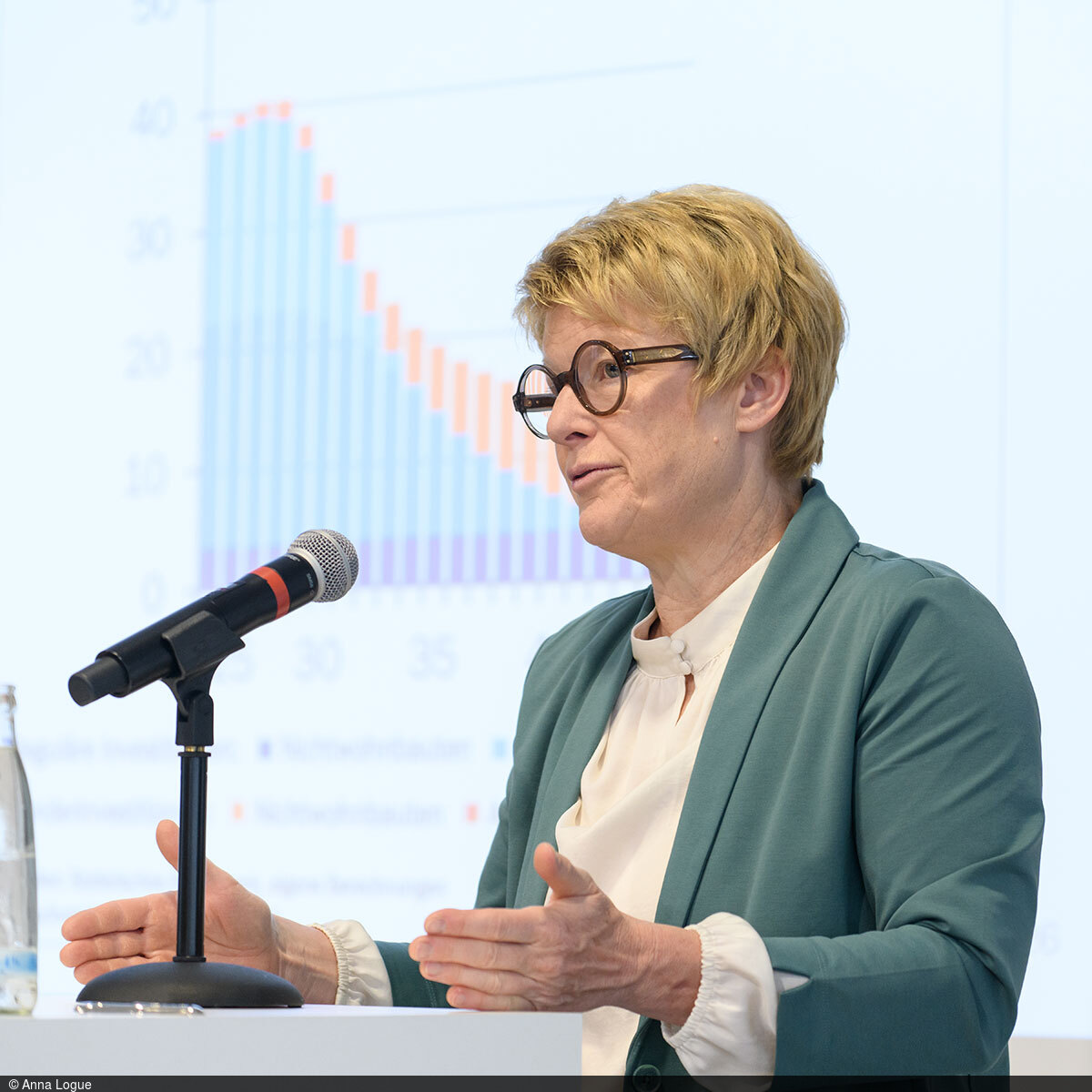ZEW Conference on Public Finance
EventsWhat Are the Economic and Political Implications of a Government-Led Transformation?
On 16 and 17 May 2024, ZEW organised the annual ZEW Public Finance Conference, sponsored by the Arbeitskreis für Europäische Integration e. V. This year’s focus topic was “Government-led Transformation”. Around 100 participants discussed this and other topics related to public finance and political economy in over 65 presentations. In addition, the event programme featured two high-profile keynote lectures and two panel sessions with invited guests.
The conference opened on Thursday with a session featuring Ralf Martin and Chiara Criscuolo from the International Finance Corporation of the World Bank Group, who presented their research on tax subsidies for research and development (R&D) and industrial policy. Afterwards, Ákos Valentinyi, a professor at the University of Manchester, discussed the role of preferences in models of structural transformation in his keynote speech. He demonstrated with time series data how employment has shifted from the agricultural sector to manufacturing and then to services. In some developing countries, however, this process does not occur and economic development remains at a low level. Only a reform of local institutions that hinder change could alter this situation.
Engaging presentations on the impact of tax subsidies on R&D and factors influencing successful industrial policy
The second day of the conference began with a keynote speech by Professor Veronika Grimm (University of Technology Nuremberg), in which she gave an overview of the economic situation in Germany. In her presentation, she highlighted structural problems facing Germany’s economy, such as demographic change. Following numerous other high-quality contributions from participating researchers, the conference concluded with presentations by Professor Georg Dürnecker (Goethe University Frankfurt) and Philipp Barteska (London School of Economics). Georg Dürnecker explained the potentially negative effects of tax subsidies for R&D when considering structural transformation effects. Philipp Barteska’s research showed that the success of industrial policy significantly depends on the qualities of the administrative personnel in charge. Competent administration leads to much higher efficiency in national industrial policy compared to the same measures implemented by less talented officials.



